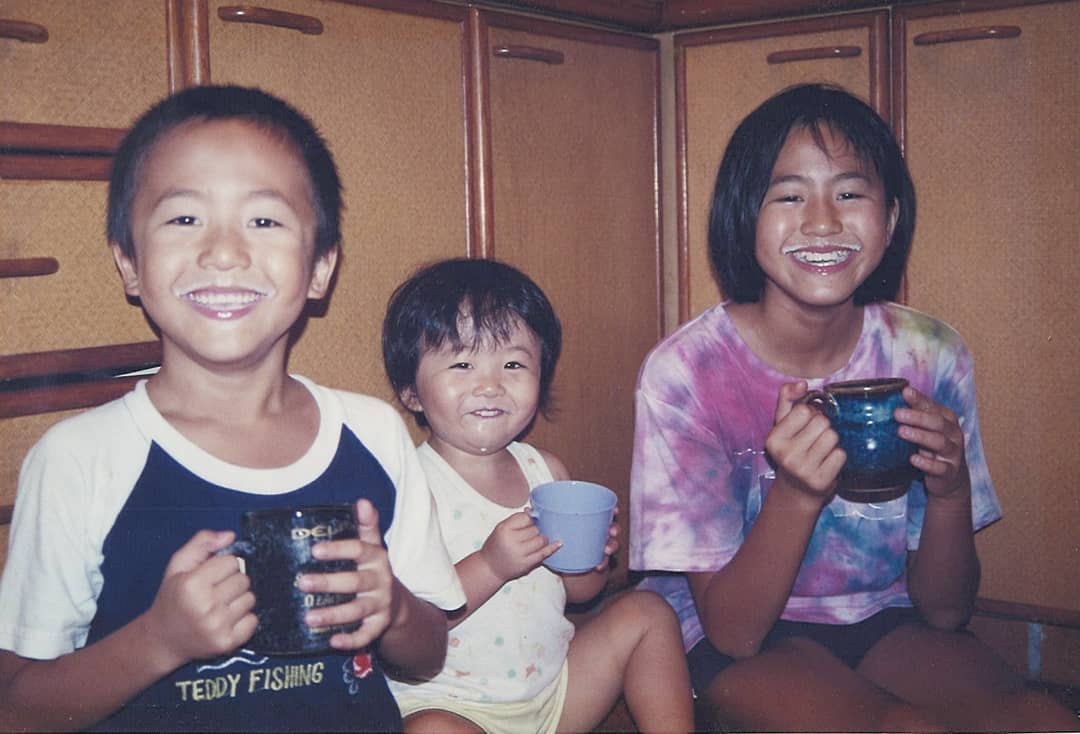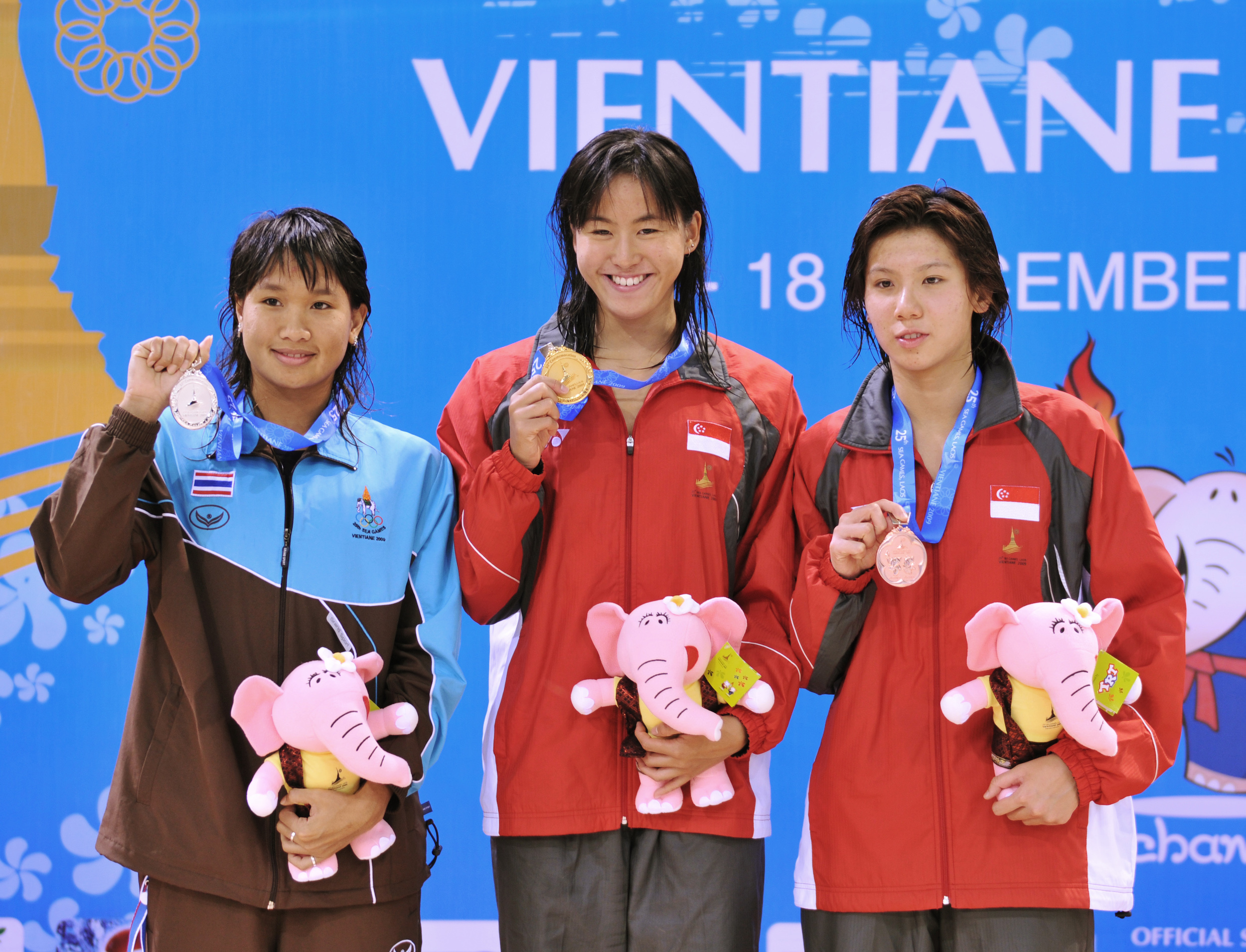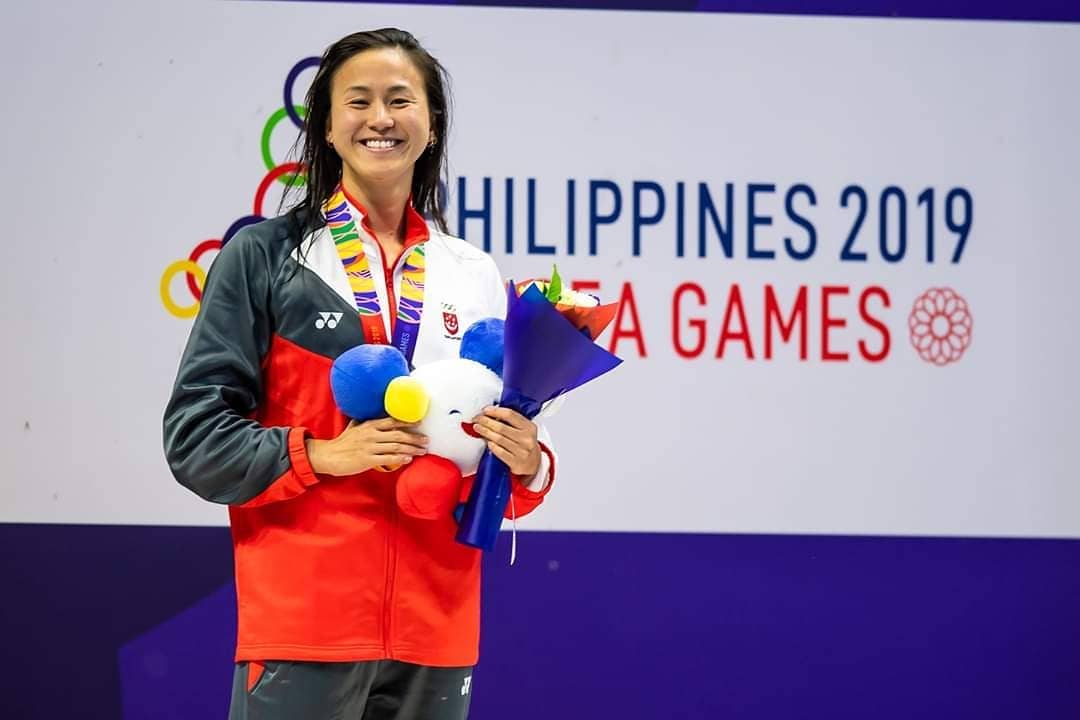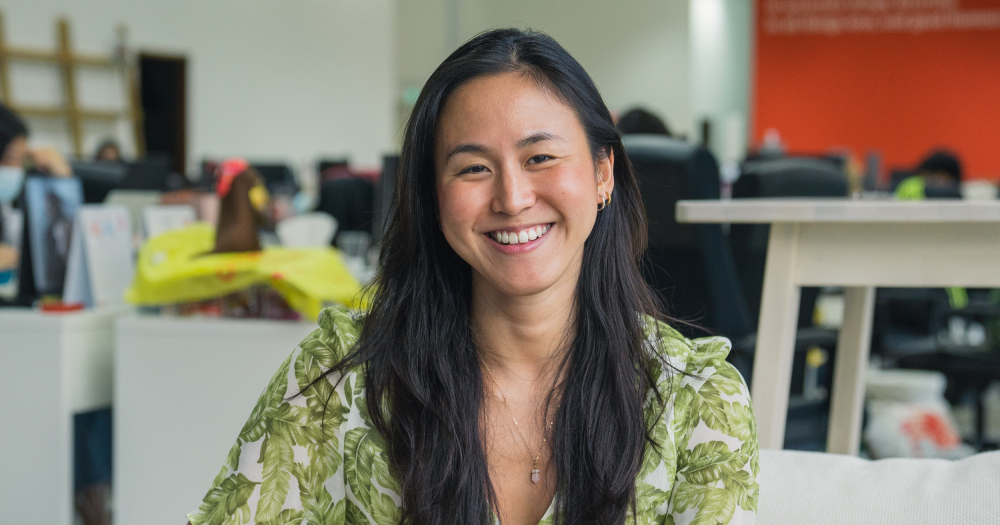The dive, the underwater, the breakout, the swim, the turn, the swim back, the wall touch.
And then the look up at the clock.
In August 2016, Quah Ting Wen’s head broke the surface of the Rio Olympic pool’s water only see that she had finished third in her 100m butterfly heats with a timing of 1:00.88 minutes.
She was more than one second slower than her Olympic qualifying time and the disappointing performance meant that she would not qualify for the semi-finals.
Quah had wanted success at the Rio Olympics to be her glorious exit from the national swimming team 11 years of representing Singapore.
Instead, it turned to a source of what-ifs and an unshakeable feeling that retiring from the sport then would leave a sour taste in the decorated swimmer’s mouth.
“I had the mindset of like, ‘okay, yes, I will be done after Rio’,” said the 28-year-old in an interview with Mothership.
“And I think because of that, I put a lot of pressure on myself at the meet. It was just a combination of nerves and maybe not prepping very well like two weeks before that.”
The moment right after the race is when you see an athlete in their “rawest state”, Quah had written in a long reflection on the Rio Olympics, published to her Facebook profile shortly after the games.
For those bearing witness — the reporters waiting in the media area and the fans sitting in the stands — Quah must have been an image of despondency.
She didn’t grant any media interviews at the games, a snub that escaped the spotlight only because of her younger brother Zheng Wen’s own decision not to speak to reporters.
“I feel like I have let my people down… I feel like I have let my coaches and myself down,” she wrote, four days after her race.
From splashing in a pool to high-performance training
Quah’s journey to becoming an Olympian began at the swimming pool of the National University of Singapore Alumni clubhouse, where her parents would bring their eldest child — then a pre-schooler — on the weekends.
“I’d play and soak in the water until my fingers became all pruney — like raisins — and I’d get out and get a waffle and like fries,” said Quah.
Soon leisurely splashes at the pool turned into a water safety and survival course, the kind where students would be taught to use pyjamas as makeshift floatation devices.
“Now that I think about it, if you actually fell into the ocean — like if you were on a cruise — I don’t think you’d be wearing pyjama pants. I don’t know what you would use to blow up into floaties.”
“I can’t imagine trying to do that with jeans, or like khaki pants,” she said, laughing.
Her next step, her parents decided, was to learn to swim the different strokes properly.
They were recommended a coach who had a reputation for being very good with technique. And so Quah began swim-lessons proper, aged seven, at a public pool in Queenstown.
“I would have stayed there a little bit longer if he hadn’t passed away when I was 10.
He was the coach who really taught me the value of precision and detail.”
 (L-R) Quah Zheng Wen, Jing Wen, and Ting Wen. Image courtesy of Quah Ting Wen
(L-R) Quah Zheng Wen, Jing Wen, and Ting Wen. Image courtesy of Quah Ting Wen
As circumstances would have it, the need to find a new swimming coach brought Quah to the Toa Payoh branch of the Singapore Swimming Association where her new instructor encouraged her to begin competing.
Her first ever race? A freestyle relay.
"I just remember that meet very clearly, because it was the relay at the end of the competition.
I think my team was behind and the kid next to me was like 'Just go! Just go! We're losing!' And I was like 'oh, okay' and I dived in and disqualified my whole team because I didn't wait for the kid to touch the wall before I jumped."
A year and a half later, Quah was drafted into the swimming association’s Centre of Excellence programme, designed to nurture young athletes with potential.
In the 17 years since then, Quah said that her training schedule has largely been the same: Two sessions on Mondays, Tuesdays, Thursdays, and Fridays. One session on Wednesday afternoons and one session on Saturday mornings.
“It would be the same every week,” she explained.
“Swimming is a year-round sport. There’s no on and off-season really. We can’t take too much time out of the water because you don’t want to lose the feel. If you’re out for too long, your body just loses the feel of the water.
The longest break I would take every year would be about two or three weeks — since I was 11.”
Nowadays, she has added weight training sessions — three times a week — and what “swimming people” call “dryland training” — which Quah admitted is a funny name because land is almost by definition dry.
https://www.instagram.com/p/BgPl0bFlJFu/
2009: "A very busy year"
All this training has developed Quah into one of Singapore’s premier swimming talents, as evidenced in 2009, a breakout year for her, at the age of 17.
Among a bevy of swim meets, Quah’s highlights that year include being Singapore’s flag bearer for the Asian Youth Games, where she swept the freestyle events, winning three individual gold medals, and a team gold and bronze in the 100m freestyle relay and the 100m medley relay respectively.
Further glory came at the end of the year, with Quah taking home two gold and two silver medals at the South East Asian Games in Laos, along with three team gold medals.
“I remember that was also the year where I broke barriers. I went under two minutes for the 200m freestyle, I went under 56 seconds for the 100m, and under 26 for the 50m.”
“A very busy year,” said Quah, rather modestly.
 A 17-year-old Quah Ting Wen (centre) at the awards ceremony for the 100m Freestyle at the 2009 SEA Games. Alongside her is silver medalist J Natthanan of Thailand, and bronze medalist Lim Xiang Qi of Singapore. Photo by BAY ISMOYO/AFP via Getty Images
A 17-year-old Quah Ting Wen (centre) at the awards ceremony for the 100m Freestyle at the 2009 SEA Games. Alongside her is silver medalist J Natthanan of Thailand, and bronze medalist Lim Xiang Qi of Singapore. Photo by BAY ISMOYO/AFP via Getty Images
Then, Singapore knew it had a star in the making.
However, her path since 2009 has been anything but straightforward — Quah missed the London Olympics of 2012 after breaking her arm in a surfing accident and true success on the world stage has been elusive.
Thus, the Rio 2016 Olympics games was to be her swan song, but the poor showing made it hard for Quah — then 24 — to walk away from the sport.
“That’s what kept me going. I didn’t want to end on a bad note. I know I can go faster, I want to keep trying to push the limit.”
“And I was still, you know, the top (in Singapore) in my event, and I wanted to keep it that way,” she said giggling.
"Left me feeling like I was missing out"
Yet, it was only about a year later that Quah considered leaving the sport once again.
“I was diagnosed with depression at the end of 2017,” she said, her usual laid-back cadence now punctuated by long pauses.
“I was on medication for about a year. And I think during that time, I just felt very lost. I was just very unsure of what I was doing and who I was.
Being an athlete, I think people just assume that we're very strong physically and also mentally, and I think that was also how I thought I should be all the time, 100 per cent of the time.
And so I think to be diagnosed with something that I didn't really understand, and there's a very huge stigma which was very confusing for me, I just felt very ashamed that there was something wrong with me or like I was defective somehow."
The complexity of the circumstance pushed Quah into the mire of an identity crisis.
Since the age of 11, she’d been in a sort of high-performance athlete auto-pilot mode; following a training schedule set for her by someone else and working towards racing at swim meets, all en route to becoming South East Asia’s fastest 100m freestyle swimmer.
Make no mistake, she’d worked hard for it, pushing her body to the limit. But perhaps cognitively she’d been cruising through, never really calling any of the shots.
“I wouldn’t be here without a ton of people along the way — all the different coaches… my parents, bunch of my friends, my teammates, schoolmates, teachers.
Having so much help along the way, there is a tendency to... well I allowed myself to kind of just be steered in whichever direction people thought was best for me.”
Only exacerbating the sense that her life was drifting about passively, was the fact that her friends were now experiencing graduate life — the excitement of starting a promising career and a distinct new chapter.
“I would go out with my friends or my classmates who had graduated and had started working. And we’d be talking about their new jobs and new adventures and things that they were trying out.
When it was my turn to contribute to the conversation, it would just be well, ‘I’m still swimming’, you know?
I'm still doing the same thing that I’ve been doing since I was eight. It just kind of left me feeling a little bit like I was missing out.”
While she wasn’t exactly keen to “join the rat race… and climb ladders”, Quah couldn’t help but wonder if all the time spent in the pool meant she was lacking experiences that seemed integral to normal life.
Apart from enlisting medical help with her depression and learning to apply some mental practices, Quah went on something of a soul search.
“That was the first time I actually looked in the mirror was like: What do I want? And how am I going to get there? And, you know, what am I going to do?”
Comfort, complacency, and changing her mindset
The search culminated in a 26-year-old Quah making her first-ever conscious decision to pursue swimming seriously.
“I realised I don’t just want to be good anymore. I wanted to be great — like I wanted to be a great athlete. I didn’t want to be comfortable and complacent, just being good and just winning.”
“I wanted to see how far I can push it,” she said.
With that came a change in mindset for Quah, a resolution to take charge of her career.
“I started having enough confidence in myself to actually want to follow that inner voice — that gut feeling like oh, maybe like training in this place would be like a good idea, or like doing this race, or maybe stepping back from something else.”
At the national training centre — where Singapore’s national team is put through their paces — Quah’s newfound direction raised a few eyebrows.
With most of the team made up by young swimmers still schooling, Quah’s assertiveness about her own training strayed from the norm.
The tension further mounted when Quah decided that she wanted to spend some time training in the United States, at Texas A&M University — where her younger sister Jing Wen studied and trained.
https://www.instagram.com/p/ByrrtUTnnqA/“It was a decision I made in March of 2019, and it was definitely not aligned with some of the plans that the coaches here locally had in mind.
There were a lot of conversations about the reasons I wanted to go and why they preferred me to stay. But I can be very stubborn when I want to be, you know?”
What followed was a year reminiscent of 2009.
On the back of the “ultimate swimming experience” in Texas — “I was just swimming, sleeping, and eating… I had nothing else on my plate” — Quah once again broke several timing barriers.
“I made it a goal to go under 55 seconds for the 100m freestyle and 25 seconds for the 50m freestyle.”
“And I did it,” Quah said in a relaxed manner which belied the fact that she was the first Singaporean woman in both events to break those barriers.
The eventful year ended with Quah once again dominant at the SEA Games — this time held in the Philippines.
She left the meet with six gold medals — three individual, three from relays — setting SEA Games records in the 100m freestyle, 100m freestyle relay, 200m freestyle relay, and 100m medley relay.
 Image from Quah Ting Wen's Instagram
Image from Quah Ting Wen's Instagram
Clicking into gear
Today, the momentum from the 2019 SEA Games has ebbed somewhat, with a global pandemic largely seeing competitions cancelled, and training brought to a halt during Singapore’s circuit breaker.
Quah admits that even now, about four months since the start of Phase 2, she is still getting up to speed.
Things are quickly clicking into gear though.
On Sunday, Oct. 11, Quah will be heading to Budapest to join up with her teammates from DC Trident, one of 10 teams competing in the International Swimming League (ISL).
https://www.instagram.com/p/CFGsUYonZxY/
The tournament — designed with spectacle and exhilaration in mind — will see Quah, the only Singaporean competing, share the pool with global swimming superstars and Olympic medalists.
According to the 28-year-old, it’s an opportunity that arose because of her 2019 training stint in the U.S.
An old swimming coach, also based in Texas, had gotten in touch with Quah and got her to make a stopover in Washington en route to Singapore to fill in for the DC Tridents during the 2019 season of the league.
This year, she’ll make her debut on the team’s roster proper.
“I’m a little bit apprehensive,” Quah said when I asked how she was feeling about competing.
“I actually haven’t done any racing for a long time… so I do get a little bit nervous when I think about it, but also like very excited.”
"I've been very close for a long time"
The ISL will be Quah’s preoccupation for at least the next six weeks — longer if the DC Tridents make the finals — but afterwards, the Tokyo 2021 Olympics looms large.
Unlike 2016, the Singaporean is making no promises as to whether it will be her last dance — “(I’ll) see how I feel,” she said with a knowing smile.
“If I feel like there’s still more that I want to try and accomplish in the sport, I will keep going. I don’t think I want to stop until I’ve gotten everything I want out of swimming.”
But we’re getting ahead of ourselves — Quah has yet to officially qualify for the games.
To do so with minimal fuss, she will have to make the Olympic Qualifying Timing — 24.77 seconds for the 50m freestyle and 54.38 for the 100m freestyle.
This allows her to qualify for the games automatically and her desire to hit these timings is a clear signal of her intent to make a splash on the world stage.
As things stand, Quah is 0.15 and 0.24 seconds away from automatic qualification in the 50m and 100m freestyle respectively.
“I’ve been very close for a long time. I just need to get...” she says, almost to herself, trailing off into thought mid-sentence.
With the margins so fine, an athlete's mental preparation can be all the difference. For Quah, that involves regularly practising visualisation — a technique where the athlete runs through each facet of race in their mind as if they were actually in the pool swimming.
“From the dive, the underwater, the breakout, the swim. For the hundred, there’s a turn and then you repeat that and you touch the wall.
Then you look up and you see the time that you want.”
You can get updates on Quah Ting Wen’s races at the International Swimming League by following her on Facebook or Instagram.
We deliver more stories to you on LinkedIn
Stories of Us is a series about ordinary people in Singapore and the unique ways they’re living their lives. Be it breaking away from conventions, pursuing an atypical passion, or the struggles they are facing, these stories remind us both of our individual uniqueness and our collective humanity.
Top image by Andrew Koay
If you or anyone you know needs mental health support or a listening ear, please contact these helplines:
SOS 24-hour Hotline: 1800-221-4444
Singapore Association for Mental Health: 1800-283-7019
Institute of Mental Health: 6389-2222 (24 hours)
Tinkle Friend: 1800-274-4788 (for primary school-aged children)
If you like what you read, follow us on Facebook, Instagram, Twitter and Telegram to get the latest updates.
